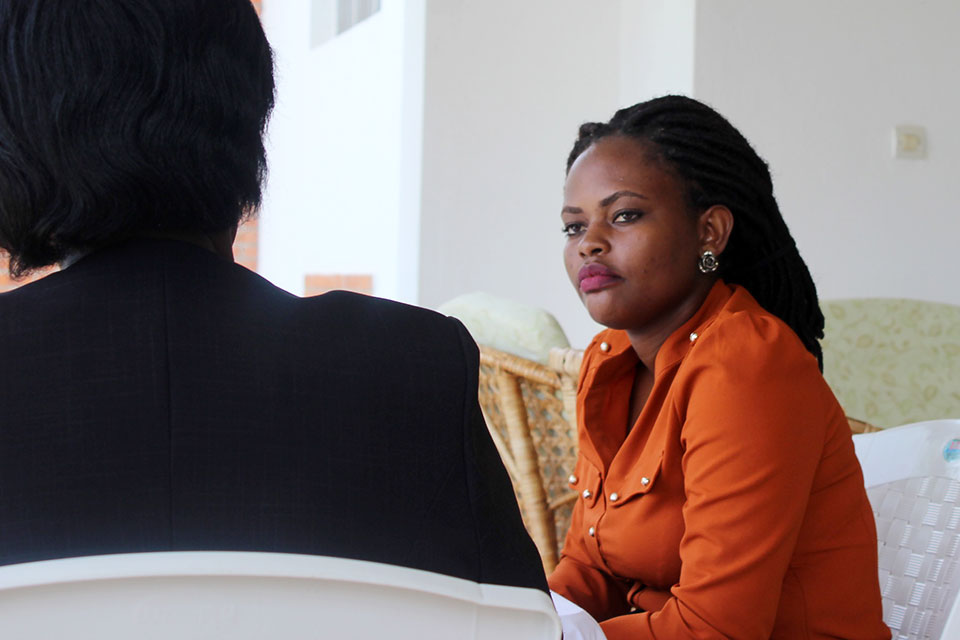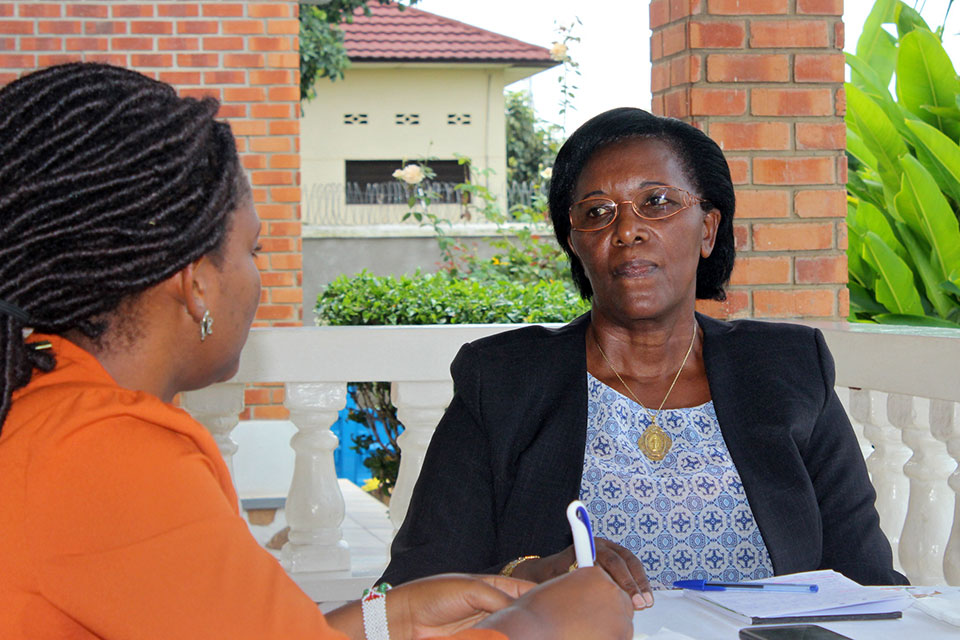My take, your take: Women's rights in Burundi, before and after the Beijing conference
In this new intergenerational series for Generation Equality campaign, young people take the lead to shape the conversations. In discussion, Marleine Kubwayo, a 24-year-old women's rights activist talks with Marguerite Bukuru, 60, former Minister of Women's Affairs and a women's rights activist since the 1980s. She participated in the Beijing conference in 1995.Date:

Marleine Kubwayo was only a few months old when the Beijing Declaration and Platform for Action was adopted. Twenty-five years later, she feels that the Beijing Platform for Action has made a big change for Burundian women. In particular, to the achievement of a constitution that guarantees women a minimum of 30 per cent in political institutions, the creation of many women's organizations and mobilization for the creation of income-generating activities.
She regrets, however, that parity between men and women has not yet been achieved and that even 30 per cent representation of women is not reached at the government level and in technical positions. Marleine also notes that the retrograde mentalities towards women have not yet changed.
Among the most pressing concerns for young women today, she mentions dropping out of school because of unwanted pregnancies, as well as family responsibilities that are a bit burdensome for women and do not allow them to easily get involved in politics.
"We need to revisit the notion of equal sharing of responsibilities between men and women," she says.

When and why did you become a women's rights activist?
Marguerite Bukuru: I became a women's rights activist in 1980 for one simple reason: after graduating from university, I was appointed legal adviser to the Minister of Women's Affairs. I was then in charge of identifying laws that discriminate against women but also of proposing changes. As I received women coming to complain to the Minister, I became sensitive to women's issues. The commitment of this woman Minister also gave me a lot of inspiration. She was very committed to the cause of women.
Later, I became General Director of the Ministry of Women's Affairs and set up a legal advice and guidance service for women. Then I became Minister of Women's Affairs. And then I worked in the field of human rights. So, you understand it is a succession of events that led me to become aware of women's rights, to promote and defend them.
What has been the biggest change for women in Burundi since the adoption of the Beijing Platform for Action?
Marguerite Bukuru: There has been a big step. If I go back, there was a time when women were not allowed to have their children cared for with their health insurance card; time when women were not entitled to housing allowances, and had no right to work without their husbands' permission, and more .
Yes, before the Beijing conference there was a step forward. But the Beijing Conference came as a more significant improvement in that it recognized that women are a very important partner to be taken into account and that we therefore need gender equality, but also empowerment.
Therefore, the Beijing Platform led Burundi to have a minimum of 30 per cent representation of women in the political sectors in the government, in the administration and in the national assembly and senate.This is really important, because we have not yet acquired the reflex to place women. There must therefore be institutional guarantees. And these institutional guarantees are to be found in the constitution after the Arusha agreement of 2000. I must say, Burundian women have been forces for change through their participation, as observers, in the Arusha negotiations.
Moreover, Burundi is now truly committed to UNSC resolution 1325 and Burundian women have drawn up an action plan for its implementation, for the involvement of women in the resolution of armed conflicts.
And at the economic level, we see initiatives here and there for the empowerment of women. There have been many initiatives and we can see that women are increasingly confident to participate in the well-being of their families, households and society as a whole.
What hasn't changed yet for women? And where do we go from here?
Marguerite Bukuru: First of all, equality should go hand in hand with parity, and parity means 50/50. We haven't reached 50/50 yet. This reflex to place at least 30 per cent women, which is guaranteed by the constitution, should normally be an obligation of the states. But we are not there yet! It is a process. We already deplore the fact that the 30 per cent is not respected.
Secondly, mentalities do not yet assimilate very well this role of women, which should be considered as that of men. A woman is still considered as a second-class citizen, especially in peasant mentalities. We must ensure that mentalities change, and this requires awareness raising. The law must also fill a legal gap that we observe in the area of inheritance, matrimonial regimes and gifts. This legislation should be established without further delay, because we have been discussing it for over 50 years now.
We hope young people should be able to continue the fight.
What do you remember most about your participation in the Beijing conference?
Marguerite Bukuru: What I retained is that there was a very important mobilization and commitment among women. Everyone mobilized, even men, so that we could make the issue of women's participation a priority.There were a huge number of participants, nearly 50,000! 17,000 participants representing governments and 30,000 representing associations. I was very impressed by the Beijing conference. There was a delirious atmosphere.
What do you think we gained at the conference?
Marguerite Bukuru: We have gained greater sensitivity in both women and men. I am mentioning women, because it is not always obvious that, when you defend women's rights, women themselves feel concerned!
We have also won because many associations have been created.We also won the introduction of a minimum 30 per cent quota in the constitution of political institutions.Today, when we draw up electoral lists to be elected as deputies or senators, this data is required.On the blocked list, one out of three persons on the list must be a woman. And when the list does not meet this quota, the list is rejected.
This is a very important thing, but I always say that we have to move forward to achieve parity! It's a long fight, and it's step by step that we're moving forward. Each era does its part. We're counting on the young generation.